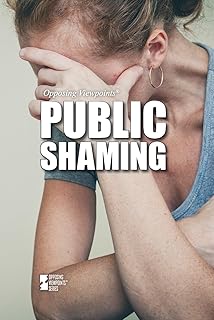Public shaming has a long history, dating back to medieval times when individuals were publicly humiliated as a form of punishment and entertainment. Fast forward to the digital age, and online platforms have become the modern-day equivalent of the town square where public shaming thrives.
Shame, a powerful emotion, can lead individuals to conform to societal norms to avoid stigma and humiliation. However, the use of shame as a tool for moral reckoning is complex. While it may temporarily influence behavior, it often results in secrecy and defensiveness rather than genuine change.
Experts like vulnerability researcher Brene Brown highlight how shame can stem from feelings of inadequacy and unworthiness, perpetuating a cycle of negative behaviors and actions. Psychologist Cecilia Dintino emphasizes the role of shame in maintaining social order and group conformity, warning of the divisive consequences it can have.
In today’s online landscape, social media platforms serve as breeding grounds for public shaming, with individuals and groups forming their own standards for calling out perceived wrongs. However, the effectiveness of shame in fostering accountability and rehabilitation remains questionable.
While some may argue that public shaming can lead to positive outcomes, research suggests that it often triggers defensiveness and defiance rather than cooperation. In navigating conversations around sensitive topics like race and bias, the use of shame can further entrench divisions rather than promote understanding.
Instead of relying on shame as a catalyst for change, experts advocate for approaches that emphasize motivation and understanding. By fostering dialogue and encouraging individuals to reflect on their actions without invoking shame, there is a greater potential for meaningful growth and cooperation.
Leadership consultant Blair Glaser underscores the importance of feedback that promotes accountability without resorting to shaming tactics. By asking reflective questions and engaging in blame-free discussions, individuals are more likely to internalize feedback and drive positive change.
Ultimately, the cycle of public shaming can only be broken through empathy, understanding, and a willingness to engage in constructive dialogue. By seeking common ground and approaching differences with curiosity rather than judgment, individuals can move towards a more inclusive and compassionate society.
📰 Related Articles
- Ohio Lawmakers Debate Online Gambling Bill Impact on State
- Weighted Vests: Experts Debate Benefits for Fitness and Health
- Trump Administration’s Regulations Impact Public Service Loan Forgiveness Eligibility
- The Impact of Street Machine Nationals on Car Enthusiasts and Automotive Culture
- Sports Betting’s Impact on Australian Culture and Society






